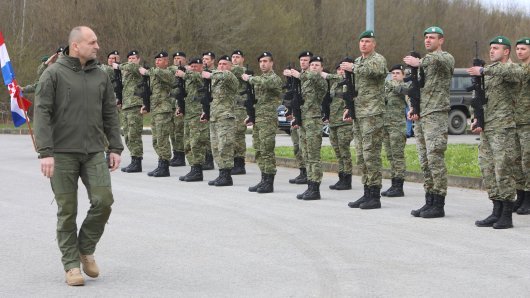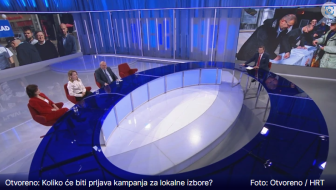The Croatian Justice Ministry on Tuesday published on its web site a comment on the latest Amnesty International (AI) report on war crimes prosecution in Croatia which says, among other things, that this human rights watchdog is claiming, without any checks or impartial research, that accusations against some high-ranking military and political officials have not been investigated.
In its 19-page statement, the Ministry cites what judicial authorities have done in war crimes prosecution in Croatia, dismissing claims from the AI report "Behind a Wall of Silence: Prosecution of War Crimes in Croatia" about alleged omissions of Croatian authorities in that area.
The Ministry finds it particularly unacceptable that in its report AI "arbitrarily and falsely" states that Croatia's declaration of independence was followed by an armed conflict between the Croatian army and Croatian Serb forces that were aided by the Yugoslav People's Army. It describes as "incredible, arbitrary and untrue" the claim that by declaring its independence, Croatia caused the armed conflict and that during the conflict, between 1990 and 1995, both sides committed considerable and serious human rights violations.
The Ministry believes that the report aims to apportion the responsibility for the war.
As for AI's claims about the alleged command responsibility of Parliament Deputy Speaker Vladimir Seks for crimes in Osijek in 1991, the Ministry describes them as arbitrary and unfounded.
Analysing the file on the trial of Branimir Glavas, AI investigators wrongly concluded that publicly stated accusations against Seks should have been investigated, because such accusations were never levelled against him, the Ministry says.
It also says that AI disregarded the Supreme Court ruling which said that Seks "did not necessarily have to be aware of the incriminated activities of the Protection Company because they were shrouded in secrecy" and that the Supreme Court described his testimony in the Glavas trial as credible.
The Ministry confirms that preliminary investigations are being conducted in the case of Davor Domazet Loso despite the fact that when referring the case to Croatia, representatives of the Hague war crimes tribunal said that they did not have enough evidence to indict him.
As for AI's concern that the Office of the Chief State Prosecutor has not opened an investigation into the crimes in Medak Pocket, the Ministry says that Zagreb police are investigating the case in cooperation with the Office of the Chief State Prosecutor.
It says that war crimes in Sisak are also being investigated and that a special team is working on that case.
AI also objected in its report to Croatia's failure to prosecute Tomislav Mercep, against whom an investigation was launched in the meantime and who was placed in custody, which AI subsequently welcomed.
The Ministry dismisses in its statement the claim that Croatia's criminal legislation does not include the institute of command responsibility and that this is the reason why military and civil commanders are not punished for the crimes of their subordinates.
It cites the Ademi-Norac case, in which Mirko Norac was sentenced on grounds of command responsibility for crime by omission.
The Ministry says it regrets the fact that AI did not write its report in cooperation with Croatian institutions and expresses readiness to cooperate with that nongovernmental organisation.
It recalls that the Organisation for Security and Cooperation in Europe (OSCE) has recognised positive trends in the prosecution of war crimes in Croatia and made conclusions entirely opposed to AI's, stating that war crimes trials in Croatia do not differ significantly from such trials in other democratic countries and that they are being conducted transparently.
As for AI's claims about ethnic bias in war crimes trials that are conducted in the absence of defendants, the Ministry cites the OSCE's report of 2010 with an entirely different conclusion, namely that ethnic bias is not present in war crimes trials.
The Ministry also dismisses AI's criticism of Croatia's legislation and its claim that Croatia has not developed an appropriate witness support system.
The Ministry concludes its extensive statement by saying that war crimes prosecution cannot be viewed without regard to "developments in the broader region", and that despite its sincere wish to bring all war criminals to justice, Croatia is limited by the fact that many perpetrators are hiding in neighbouring countries.




































